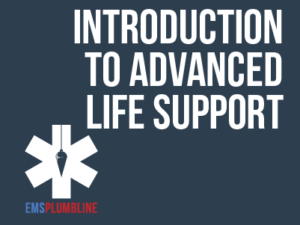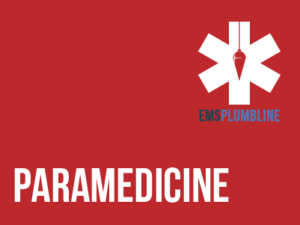Constructing: Airway Essentials Part 1

Course Description
We think that you will appreciate the opportunity to review the essential aspects of Airway Assessment and Management with one of the most dedicated paramedics that you can find: Chris Galton. As a Transplant Anesthesiologist and a Paramedic, Galton has spent countless hours learning to assess and maintain some of the most difficult patient airways out there. Instead of going to bed after staying up all night on a liver transplant case, Galton showed some paramedic-style grit and shared some knowledge with Rachel and Rich (two experienced paramedics). The cameras were rolling and you will want to see what they spoke about.
Take Lesson Now
Constructing: Airway Essentials Part 2

Course Description
Most paramedics will remember walking around town during their original paramedic school and deciding which patients would be a “tough tube.” If that describes you when you first started, you will appreciate this brief review. Dr. Christopher Galton takes the time to takes the time to give a memorable examples of the mnemonics LEMON and BONES, which prove to be a fantastic teaching tools. We think you will enjoy the illustrations that allow you to remember these important evaluations. Final Exam: This multiple choice exam is designed to test your knowledge of the material you just reviewed. You have two attempts to gain an 80% or higher on this exam. Please take your time and answer each question carefully.
Take Lesson Now
Constructing: Airway Essentials Part 3

Course Description
Knowing why you are doing what you are doing will almost always produce a better result. In this case, Dr. Christopher Galton explains why we ventilate at the rates and the volumes we do. This insightful discussion will offer ideas on how to use the ventilation tools that we encounter every day. Final Exam: This multiple choice exam is designed to test your knowledge of the material you just reviewed. You have two attempts to gain an 80% or higher on this exam. Please take your time and answer each question carefully.
Take Lesson Now
Constructing: Airway Essentials Part 4

Course Description
This lesson explores a few BLS concepts that every ALS provider should know. You will appreciate the back-to-basics approach Dr. Christopher Galton, uses to ensure adequate ventilation. Final Exam:This multiple choice exam is designed to test your knowledge of the material you just reviewed. You have two attempts to gain an 80% or higher on this exam. Please take your time and answer each question carefully.
Take Lesson Now
Constructing: Airway Essentials Part 5

Course Description
Most paramedics will tell you that online training will not allow you the opportunity to learn how to perform a psychomotor skill such as intubation. We agree to a point. You will find that the discussion with Dr. Christopher Galton, will likely have you thinking differently the next time you intubate a patient. Chances are your success rates will improve. Final Exam: This multiple choice exam is designed to test your knowledge of the material you just reviewed. You have two attempts to gain an 80% or higher on this exam. Please take your time and answer each question carefully.
Take Lesson Now
Constructing: Airway Essentials Part 6

Course Description
This lesson on how to instrument the airway will give you fantastic ideas on how to create your next lab session. Take note as some pearls are offered by Dr. Christopher Galton, on how to assess and manage ALS airway procedures. Final Exam: This multiple choice exam is designed to test your knowledge of the material you just reviewed. You have two attempts to gain an 80% or higher on this exam. Please take your time and answer each question carefully.
Take Lesson Now
Constructing: Airway Essentials Part 7

Course Description
Every paramedic has ideas on what is needed to obtain a good view while instrumenting the airway. If this lesson does not create an educated discussion on the topic, nothing will. Take the opportunity to imagine yourself in the classroom and identify what you would do.Final Exam: This multiple choice exam is designed to test your knowledge of the material you just reviewed. You have two attempts to gain an 80% or higher on this exam. Please take your time and answer each question carefully.
Take Lesson Now
Constructing: Airway Essentials Part 8

Course Description
These eight Airway Essentials Lessons conclude with Dr. Christopher Galton’s thoughts on what should be done after the ALS airway has been established. It is here that ideas are offered on what paramedics should read and learn more about to improve their practice. Grab a pencil and a notepad and get ready to graduate from the EMS Plumbline “Introduction to ALS” to the “Paramedicine” Division. Final Exam: This multiple choice exam is designed to test your knowledge of the material you just reviewed. You have two attempts to gain an 80% or higher on this exam. Please take your time and answer each question carefully.
Take Lesson Now
ALS Airway Response - Part One

Course Description
This conversation with Dr. Christopher Galton turns into a lesson that any paramedic (no matter what their background) will find beneficial in their attempt(s) to improve their Airway Skills. Dr. Galton, leads this discussion by bringing together his experiences in the pre-hospital arena, the emergency department, the ICU, the operating room, and beyond. Pull out a pen and paper and get ready to write down talking points that you will undoubtedly debate with fellow paramedics. You have two attempts to gain a 70% or higher on the exam. Take your time and good luck!
Take Lesson Now
ALS Airway Response-Part Two

Course Description
In a twenty minute discussion, Dr. Galton shared some very valuable opinions that were formulated, in a large part, from his many years as a paramedic. Join us for an extension of this discussion. In this second part, Dr. Galton briefly discusses exhalation of CO2, Instrumenting an Airway, Management of Gastric Tubes, and more. You have two attempts to gain a 70% or higher on this exam. Take your time and good luck!
Take Lesson Now
ALS Airway Response - Part three

Course Description
This conversation with Dr. Christopher Galton turns into a lesson that any paramedic (no matter what their background) will find beneficial in their attempt(s) to improve their Airway Skills. Dr. Galton, leads this discussion by bringing together his experiences in the pre-hospital arena, the emergency department, the ICU, the operating room, and beyond. Pull out a pen and paper and get ready to write down talking points that you will undoubtedly debate with fellow paramedics. You have two attempts to gain a 70% or higher on the exam. Take your time and good luck!
Take Lesson Now
RSI for the Non-RSI Provider

Course Description
This course is an overview of the RSI procedure and the means by which requests should be made for an RSI provider in the MLREMS system.
The course will describe the RSI process, indications for RSI in the prehospital setting, and what both ALS and BLS providers can do to assist in the RSI process.
Successful completion of the course and accompanying quiz will earn 0.5 hours of CME credit.
Take Lesson Now
Introduction to RSI Part 1—Pharmacology Overview

Course Description
This course has been designed for the paramedic who is entering a Rapid Sequence Induction (RSI) course for the first time, or the RSI student who needs a brief review. Nicole M. Acquisto, Doctor of Pharmacy, does a fantastic job of summarizing medication concerns with each phase of the process. Final Exam: This multiple-choice exam is designed to test your knowledge of the material you just reviewed. You have two attempts to gain an 80% or higher on this exam. Please take your time and answer each question carefully.
Take Lesson Now
Post-Intubation Management

Course Description
The NYS Collaborative Protocol: (2-34) General: Post Intubation Management permits the insertion of placement of an orogastric (OG) tube, if equipped and regionally approved. This lesson is designed to assist with that training. Experienced EMS Educator, Paramedic Jason Haag, sits down with the distinguished and seasoned Medical Director from the Finger Lakes Region, Jack Davidoff, MD. Their instruction is the perfect support module for what you and your team can do to assure psycho-motor skills in a classroom.
